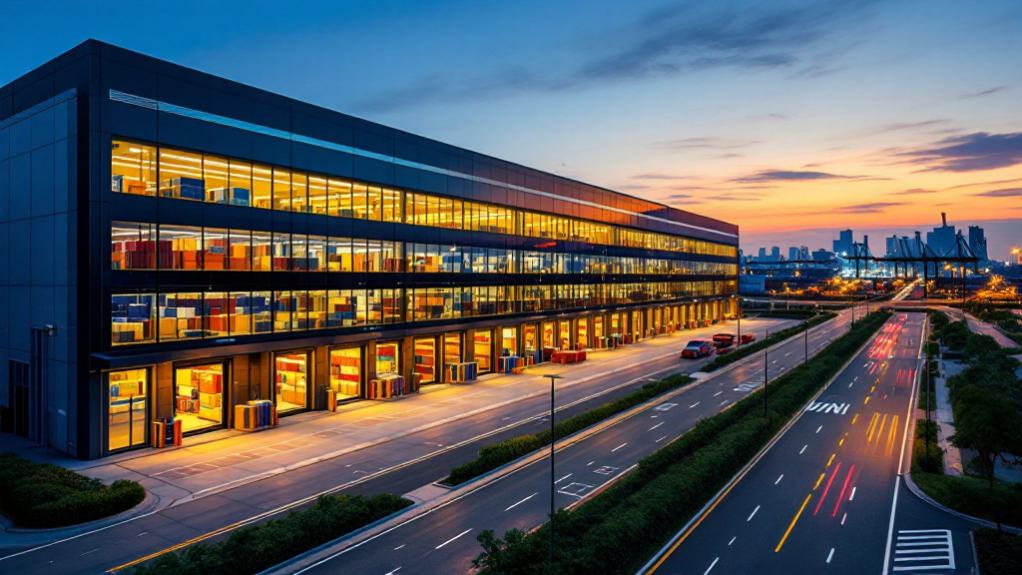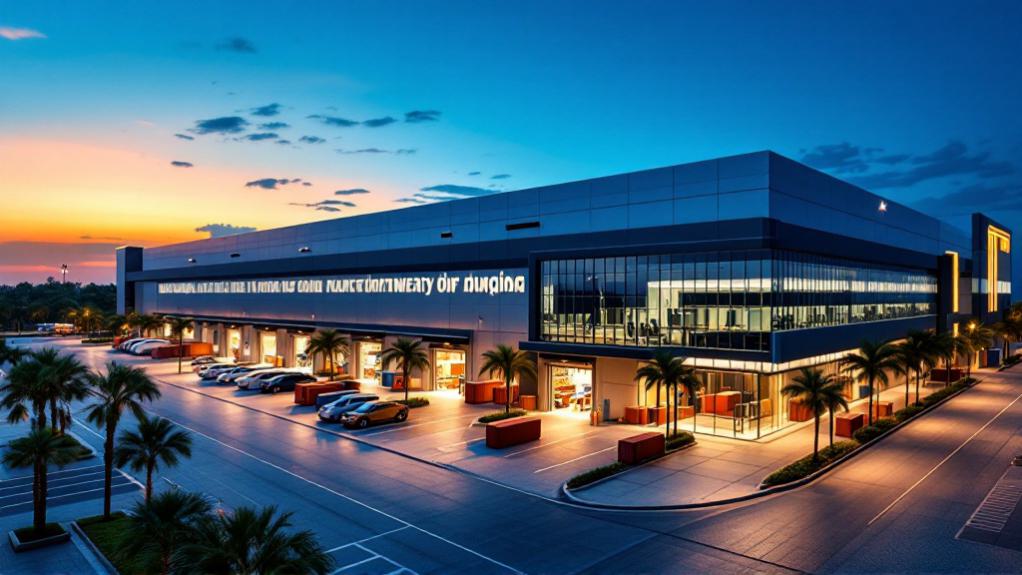Singapore’s industrial property market demonstrates robust performance with 3.5-4% rental growth in 2024, led by prime logistics and warehouse segments. Warehouse space commands S$1.68 per sq. ft., reflecting a 2.0% QoQ increase, while property prices have appreciated 3.5% year-on-year. Data centers and high-tech manufacturing facilities attract significant investment interest, positioning Singapore as a regional hub. Government initiatives supporting high-value manufacturing clusters further strengthen market fundamentals, suggesting continued modest growth of 2-3% projected for 2025.

Resilience characterizes Singapore’s industrial property market in 2024, with overall industrial rents demonstrating robust growth of 3.5-4% amid balanced supply-demand dynamics. Prime logistics and warehouse segments led this growth trajectory, while business parks exhibited a notable two-tier trend with city-fringe locations experiencing appreciation and suburban counterparts facing downward pressure.
The market absorbed approximately 1.7 million square meters of new supply while maintaining stable occupancy rates around 89%, indicating healthy demand fundamentals despite substantial new completions. Prime industrial rents for warehouse space showed impressive performance with an increase of 2.0% QoQ to S$1.68 per sq. ft.
Industrial property prices recorded a 3.5% year-on-year increase in 2024, contributing to a cumulative growth of 20.8% since Q4 2020, though the pace has moderated compared to previous years. This price appreciation reflects persistent investor confidence in Singapore’s industrial real estate, particularly for high-specification assets in strategic locations. Singapore’s transition from low-cost manufacturing in the 1970s to a technological exporting hub has played a significant role in shaping today’s industrial property landscape.
Industrial property values continue their upward trajectory, reflecting unwavering investor confidence in Singapore’s high-specification assets despite moderating growth rates.
The logistics sector has emerged as the standout performer within the industrial category, alongside surging interest in data center investments and high-tech manufacturing facilities as Singapore positions itself as a regional hub for advanced industries.
Investment volumes reached $3.2 billion in 2024, with institutional investors and REITs demonstrating continued appetite for quality industrial assets, particularly in the logistics and data center segments. Yield compression for prime industrial properties indicates strong competitive demand despite the higher interest rate environment.
The government’s Industrial Land Sales Programme and initiatives supporting high-value manufacturing clusters have further bolstered market confidence, complemented by incentives for green industrial developments.
Looking ahead to 2025, analysts project modest rental growth of 2-3% across the industrial sector, with high-specification spaces expected to outperform. The market’s trajectory will likely be influenced by evolving ESG considerations and technological advancements reshaping industrial space requirements.
Supply pressures may emerge in certain submarkets, potentially creating localized market imbalances, though the overall outlook remains favorable given Singapore’s strategic position as a regional manufacturing and logistics hub amid ongoing supply chain reconfiguration trends.
Frequently Asked Questions
How Do New Sustainability Regulations Affect Industrial Property Values?
New sustainability regulations considerably impact industrial property values, creating a bifurcation in the market.
Energy-efficient, green-certified properties command 3-7% higher rental premiums and attract environmentally conscious tenants, while non-compliant assets face diminishing values and potential obsolescence.
Mandatory climate reporting requirements, carbon taxation, and investor ESG priorities further accelerate this value divergence, necessitating capital expenditure for retrofitting older industrial facilities to maintain competitive market positioning.
What Financing Options Exist for Small Businesses Seeking Industrial Space?
Small businesses seeking industrial space in Singapore can access multiple financing channels, including commercial bank loans with LTV ratios up to 90% and interest rates between 3.2-4.5%.
They can also benefit from government assistance through Enterprise Singapore’s financing schemes and Temporary Bridging Loan Programme offering up to S$3 million.
Additionally, there are alternative options such as crowdfunding platforms, peer-to-peer lending, private equity mezzanine financing, sale-and-leaseback arrangements, and equipment leasing solutions for capital optimization.
How Do Industrial Automation Trends Impact Space Requirements?
Industrial automation trends necessitate reconfigured space requirements, with facilities demanding higher ceiling clearances for robotic systems, expanded electrical capacity, and reinforced floor loading specifications.
The integration of automated material handling systems requires wider aisles and dedicated zones for human-machine interaction, while advanced manufacturing technologies often necessitate specialized climate control systems, enhanced data infrastructure, and flexible floor plans that can accommodate rapid reconfiguration as technological capabilities evolve.
Are Foreign Investors Facing New Restrictions in Industrial Property Acquisitions?
While Singapore currently maintains an open stance on foreign industrial property investments with no general ownership restrictions, recent policy developments suggest increased scrutiny may be forthcoming.
The introduction of the Significant Investments Review Bill in 2023 signals potential future regulations for critical infrastructure acquisitions, and foreign investors may face additional reporting requirements for large industrial property transactions.
Current regulations remain investor-friendly, though monitoring of sensitive sectors and critical infrastructure assets is intensifying.
How Do Co-Working Trends Translate to Industrial Property Configurations?
Co-working trends are manifesting in industrial properties through strategic spatial reconfiguration, with facility owners incorporating modular, multi-purpose zones that accommodate both manufacturing and office functions.
High-specification industrial buildings now frequently feature dedicated collaborative areas, integrated telecommunications infrastructure, and flexible hot-desking arrangements.
This transformation is evidenced by the 25% increase in flexible workspace demand observed in 2022, driving the development of “industrial campuses” where production capabilities coexist with professional amenities and digitally-enabled meeting environments.





